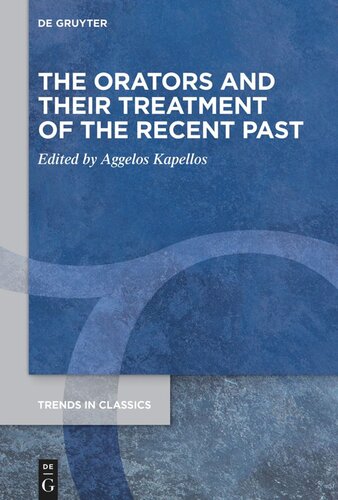

Most ebook files are in PDF format, so you can easily read them using various software such as Foxit Reader or directly on the Google Chrome browser.
Some ebook files are released by publishers in other formats such as .awz, .mobi, .epub, .fb2, etc. You may need to install specific software to read these formats on mobile/PC, such as Calibre.
Please read the tutorial at this link: https://ebookbell.com/faq
We offer FREE conversion to the popular formats you request; however, this may take some time. Therefore, right after payment, please email us, and we will try to provide the service as quickly as possible.
For some exceptional file formats or broken links (if any), please refrain from opening any disputes. Instead, email us first, and we will try to assist within a maximum of 6 hours.
EbookBell Team

0.0
0 reviewsThis volume focuses on the representation of the recent past in classical Athenian oratory and investigates the ability of the orators to interpret it according to their interests; the inability of the Athenians to make an objective assessment of it; and the unwillingness of the citizens to hear the truth, make self-criticism and take responsibility for bad results. Twenty-eight scholars have written chapters to this end, dealing with a wide range of themes, in terms both of contents and of chronology, from the fifth to the fourth century B.C. Each contributor has written a chapter that analyzes one or more historical events mentioned or alluded in the corpus of the Attic orators and covers the three species of Attic oratory. Chapters that treat other issues collectively are also included. The common feature of each contribution is an outline of the recent events that took place and influenced the citizens and/or the city of Athens and its juxtaposition with their rhetorical treatment by the orators either by comparing the rhetorical texts with the historical sources and/or by examining the rhetorical means through which the speakers model the recent past. This book aims at advanced students and professional scholars. This volume focuses on the representation of the recent past in classical Athenian oratory and investigates: the ability of the orators to interpret it according to their interests; the inability of the Athenians to make an objective assessment of persons and events of the recent past and their unwillingness to hear the truth, make self-criticism and take responsibility for bad results.